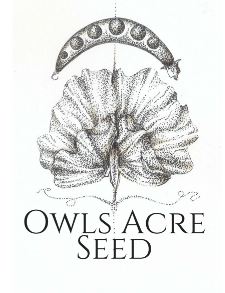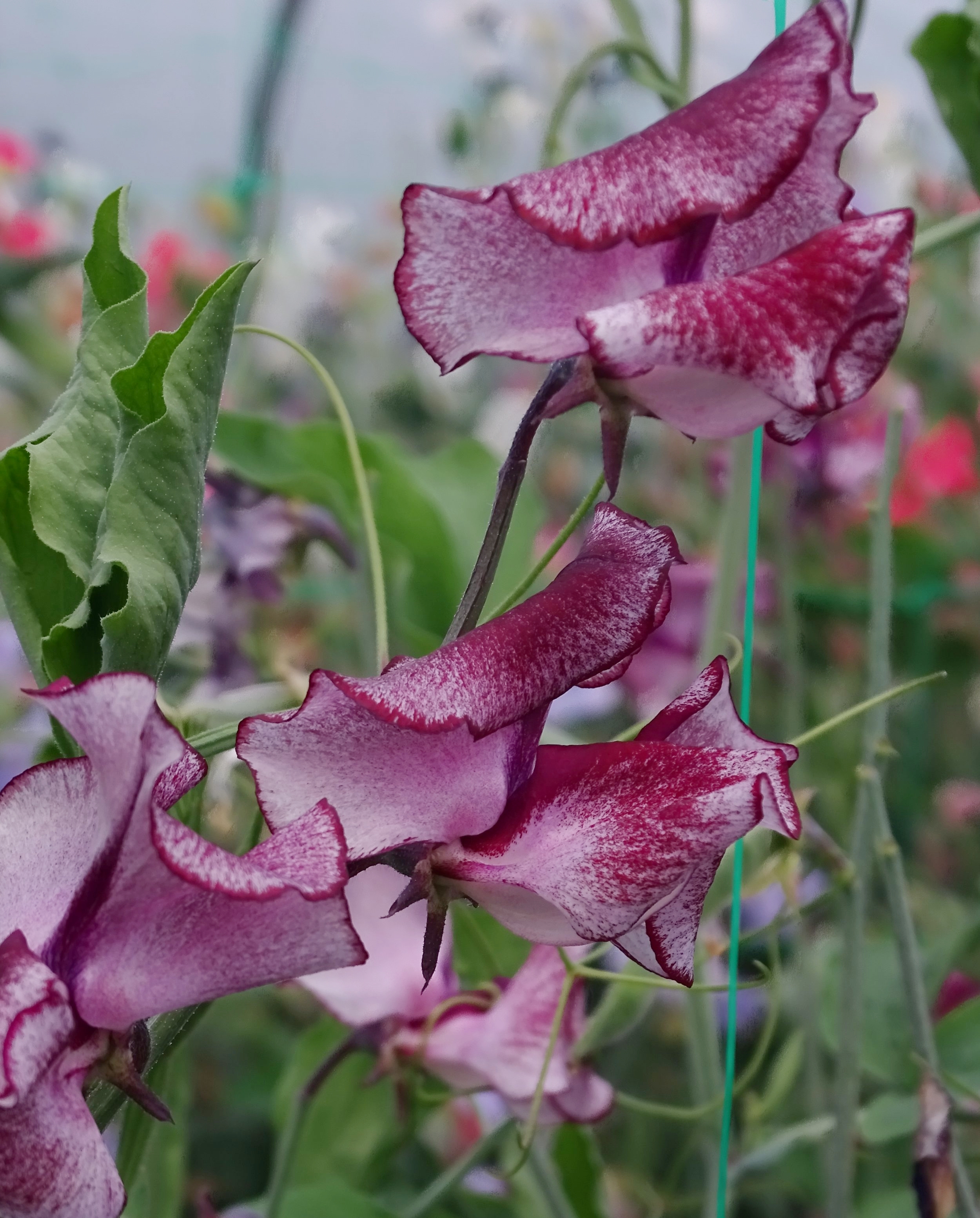Mark Rowland and Maggie Goodsell are the originators of Owl's Acre Seed, previously Owl's Acre Sweet Peas. I am grateful for our continuing business connections and their ongoing support and advice, gleened over many dedicated years of working with Sweet Peas. I have recently listed a range of chilli seed in the shop that has been bred and selected by Mark and Maggie's company, 'Gourmet Genetics', and we are offering some tomato varieties from them too. I've been meaning to put the chillies online for a while, and am really happy to now have ten of Gourmet Genetics selections available.
Mark's significant chilli program has involved trialling chillies from all over the world, to find those most suited to growing in the Northern European climate. His focus has been on determining those varieties with the most outstanding flavour. The chillies now available from Owl's Acre comprise three different cultivated species: Capsicum anuum, Capsicum baccatum and Capsicum chinense, as well as 'Lancer', a cross between C. anuum and C. frutescens. All the species originate in Central and South America, and comprise fruits with a wide varieties of flavours, colours and forms: from sweet bell peppers (C. anuum) to fruity, mild chillies (C. baccatum) and the more fiercely hot and pungent varieties (C. chinense and C. anuum).
All the varieties on offer here are suitable for Northern European cultivation, where they generally perform as annuals (though most are technically perennial in their native climates). Ideally chilli seed should be sown mid-February, and kept at a temperature of around 24 degrees or warmer for germination. They can then be kept slightly cooler, between 20 and 24 degrees, with plenty of light. As the plants become established the temperature can gradually be decreased. They can be grown in pots or in the soil.














